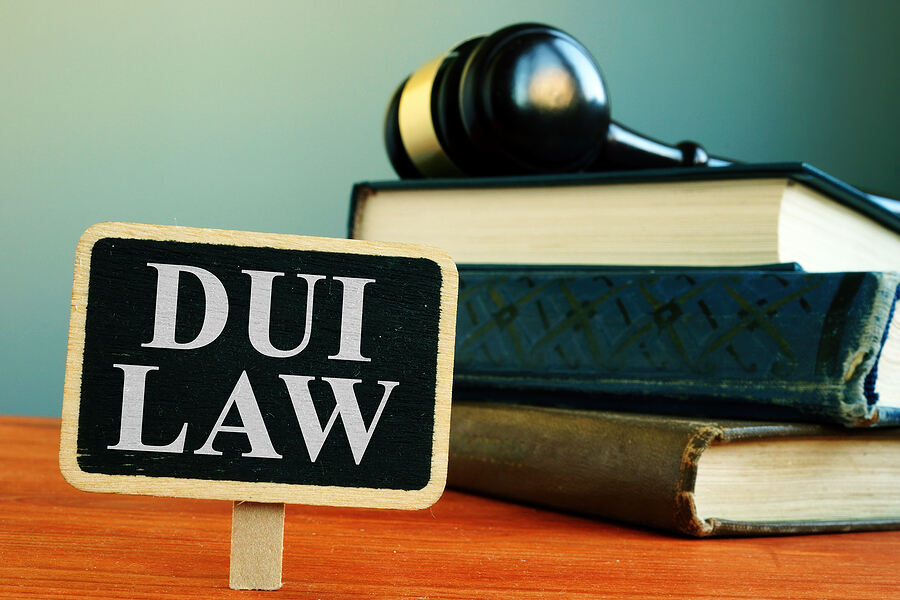DUI (Driving Under Influence) and DWI (Driving While Intoxicated) are offenses that could come with serious consequences. If police charge you with DUI or DWI, you may need legal representation. Otherwise, you could face a conviction that may become a matter of public record.
Knowing how to act when you face a DUI or DWI charge is the key to minimizing the penalty. By speaking with an experienced DWI or DUI attorney, you can work out an effective defense strategy and avoid serious mistakes.
DUI vs. DWI in Texas
In Texas, DUI and DWI are two different charges.
DUI
A DUI is a charge only issued to minors (drivers under the age of 21). Minor drivers can face a DUI charge if the alcohol content in their blood is between 0.00 percent and 0.08 percent.
Common penalties for a DUI include:
- Fines up to $500.
- Up to 40 hours of community service.
- Alcohol awareness classes.
- License suspension of up to 60 days.
A DUI in Texas is a class C misdemeanor, which means that it does not lead to jail time. However, if a minor is driving under the influence of drugs or the alcohol content is over 0.8 percent, they may face a DWI charge.
DWI
According to the Texas Penal Code, you may be charged with DWI if your blood alcohol content is over 0.08 percent or you are showing clear signs of impairment while driving.
Intoxication in DWI does not just mean alcohol. You could face this charge if you are driving under the influence of illegal drugs or prescribed medications. Penalties for DWI are more severe than for a DUI.
Breakdown of DWI Penalties
Penalties for DWI may vary depending on several factors, including the expertise of your DWI attorney, blood alcohol content, and previous DWI convictions.
A first-time DWI is usually a class B misdemeanor. The punishment is:
- Up to $2,000 fine
- Up to 180 days in jail
- License suspension for up to a year
- An annual fee ($1,000 or $2,000 for three years) to retain your driver’s license
A second-time DWI is usually a class A misdemeanor. The punishment is:
- Up to $4,000 fine
- A month to a year in jail
- License suspension for up to two years
- A $100 to regain your license
A third-time DWI is a third-degree felony. The punishment is:
- Up to $10,000 fine
- Two years to 10 years in prison
- License suspension for up to two years
If you have children under 15 in the car with you, you could be charged with child endangerment. This would lead to an additional fine of up to $10,000 and a jail sentence of up to two years. You could also lose your license for 180 more days.
Important: if you are not driving the vehicle but sitting in the driver’s seat with the engine and lights on, it can be considered “vehicle operation.” This could also result in a DUI or a DWI charge.
DWI as a Felony
While first and second DWI charges are usually misdemeanors, they can quickly turn into felonies if:
- You cause an accident that results in serious bodily injuries of other traffic participants.
- You cause an accident that results in someone’s death. If this happens, you can face intoxication manslaughter, which is a second-degree felony. The penalty can include a 20-year state prison sentence.
Felonies are criminal offenses. Convictions usually lead to jail or prison sentences. If you have been charged with a DWI felony, you need to work with an experienced lawyer to avoid or minimize the penalty.
What is “wet reckless”?
Wet reckless is a plea bargain that you may get when facing DWI charges. The prosecution could offer you an opportunity to plead guilty to a lesser charge, which is “reckless driving.” Reckless driving is a misdemeanor with maximum penalties of up to $200 and/or up to 30 days in jail.
By accepting this deal, you can avoid mandatory incarceration, loss of license, and sizable fees. If the prosecutor offers you a plea bargain, you may need to consult an attorney. In some cases, it could avoid a serious DWI conviction. In others, it could mean that you have a good shot at avoiding a conviction altogether.
Who will know about my DWI conviction?
In Texas, DWI convictions are a matter of public record. This means that anyone who decides to check your background, be it an employer or a landlord, can see the conviction.
Since 2017, it is possible to hide this conviction from the public record, but only if:
- It is a first-time DWI.
- The blood-alcohol level was less than 0.15 percent.
- You have paid all fines, served the sentence, complied with a license suspension.
- You were not convicted of any crimes since the DWI incidents.
- It has been two years since the DWI incident.
Getting an order of non-disclosure can be complicated and may require professional legal assistance.
Can I avoid a DWI conviction?
If you are charged with a DWI, you have several options:
- Face a minimal penalty
- Face a serious penalty
- Walk away without a conviction
A lawyer could use several lines of defense to help you avoid a conviction. Usually, it has to do with mistakes made by the police officers during the initial stop. Another approach is proving involuntary intoxication or disputing the accuracy of blood alcohol and sobriety tests.
In straightforward DWI cases, an attorney can work on minimizing your penalty. If a conviction occurs, they could help you obtain a non-disclosure order so that you can hide the record.
When should I call an attorney?
As soon as an officer arrests you for DUI or DWI, call an attorney. To get a better shot at proving your innocence or reducing your penalty, an attorney should start an investigation as soon as possible.
Collecting fresh evidence and speaking to witnesses while they still remember the incident are vital to strengthening defense tactics.


